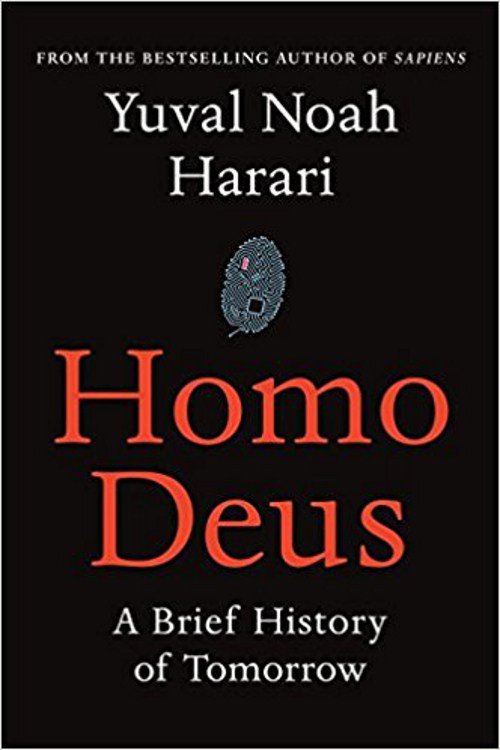Book Review: Homo Deus

Homo Deus is a book about the possible future of humanity by Israeli historian Yuval Noah Harari. The book is divided into three sections and eleven chapters, each of which covers a different part of the history of Homo sapiens and our potential futures.
Harari begins with an introductory chapter in which he considers how the future will likely be fundamentally different from the past. He correctly credits modern agriculture, evidence-based medicine, and nuclear weapons for the relative lack of war, famine, and plague in the current era. He then predicts that improvements that raised the minimum standard for the least among us will also be used to upgrade those who are well-off, the logical conclusion of which is a serious push for immortality and designed happiness. Harari gives the resulting superhumans the binomial name Homo deus, due to their similarity to polytheistic gods of Greek and Hindu tradition. The chapter concludes by contemplating the implications of such a change in human nature.
Part I deals with human prehistory, explaining how Homo sapiens came to dominate life on Earth. Here, Harari takes a dim view of our changed relationship toward animals since the Agricultural Revolution, noting the cruelty of factory farming and the extinction of many wild animals. He discusses the corresponding changes in religions as people came to view themselves not as just another part of nature, but as having dominion over it. His description of humanism as a religious movement would certainly be disputed by secular humanists, but it is an insightful observation for certain meanings of the word 'religious.' The third chapter begins with a scientific case against the existence of souls, while considering why this case is unpopular with the masses. The difference in consciousness between animals, humans, and artificial intelligences is discussed at length. Harari makes the important observation that the ability to coordinate ever larger numbers of people is what sets Homo sapiens apart from animals and the other human species that are now extinct. This coordination and cooperation is then applied to several examples of political and economic exploitation and upheaval. Part I segues into Part II by introducing the concept of intersubjectivity, which is a level of meaning that is neither universal nor personal, but shared between people. The power of intersubjective beliefs is shown to explain many things, from societal customs to the rise and fall of social orders.
Read the entire article at ZerothPosition.com
Interesting choice of read! Good review